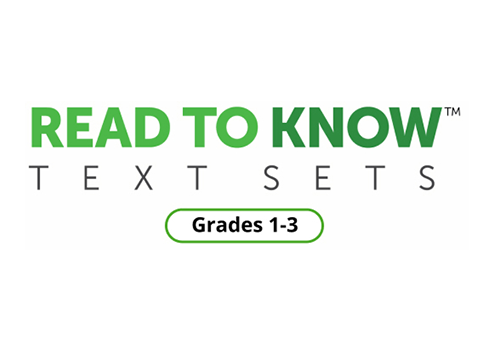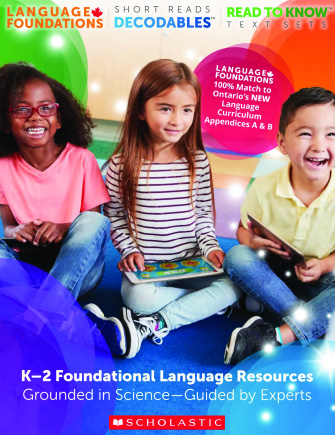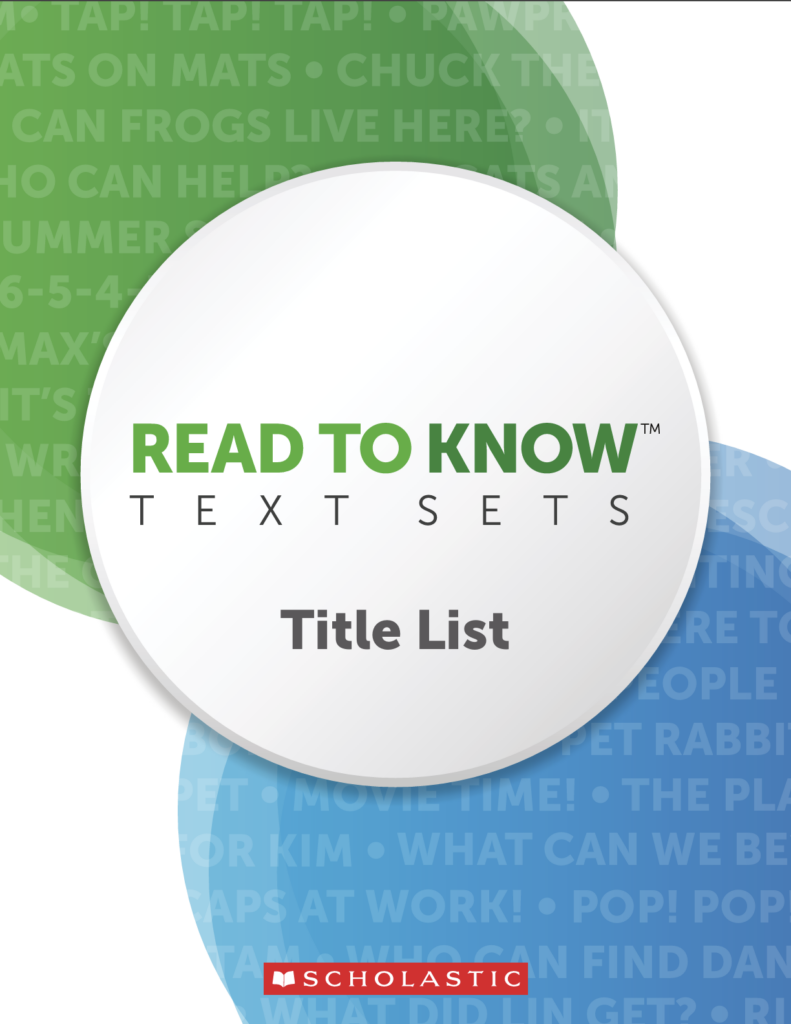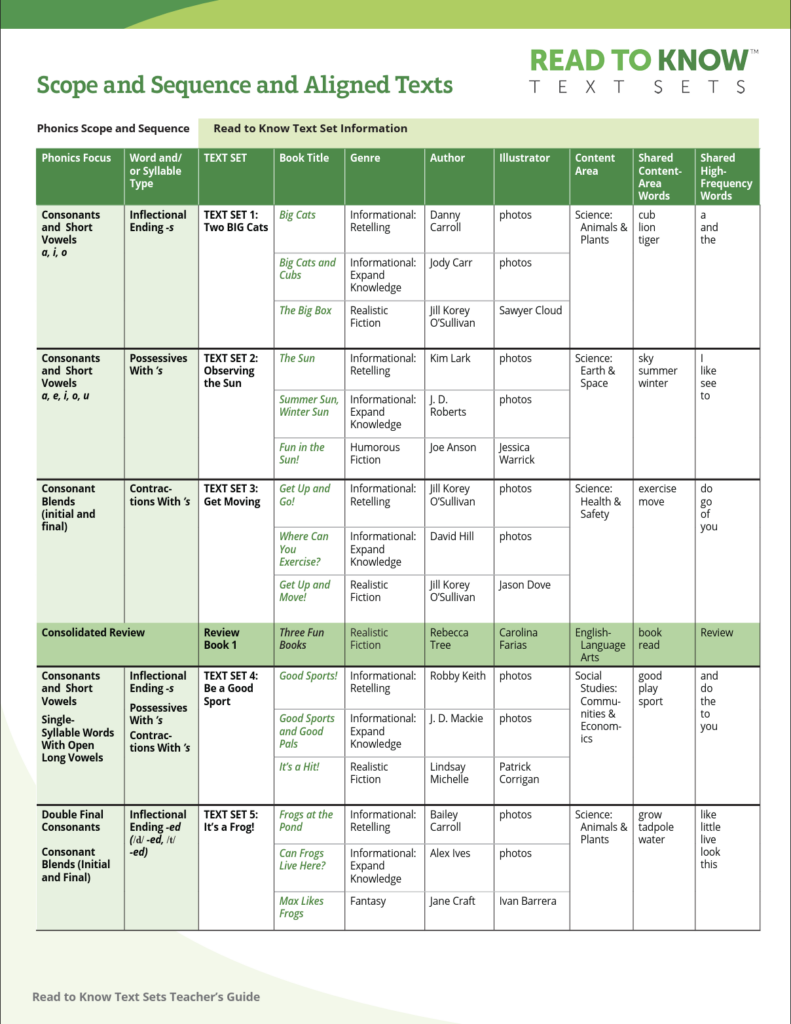Continually and cumulatively spiral prior phonics skills with topic-based text sets
The research is clear. Systematic, explicit, and cumulative phonics instruction is the most effective way to teach children how to read words. The science of how children learn to read may be complicated but implementing it in the classroom doesn’t have to be.
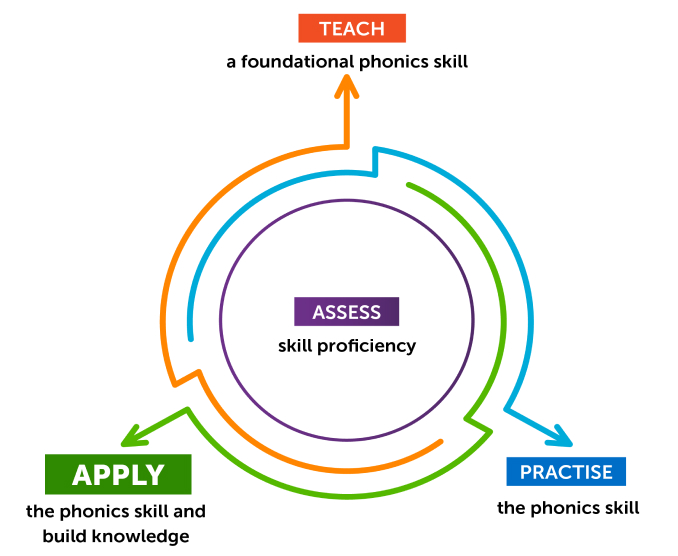
Four Steps, One Framework
Language Foundations, Short Reads Decodables, and Read To Know Text Sets are each built on an easy-to-use framework that breaks systematic instruction down into four simple steps: Teach, Practise, Apply, Assess.
Build content-area knowledge while cementing phonics skills with Read To Know Text Sets. These highly decodables text sets include 75% non-fiction and reflect the co-ordinated skills applications students need to bridge their skills from decodable to authentic text. The Watch & Learn videos for each Text Set introduce the topic, build background knowledge, and develop content-specific vocabulary.
Read To Know in Action

Teach
Lessons, activities, and discussion prompts in this module focus on building foundational and other literacy skills including vocabulary, comprehension, and writing.

Practise
Students engage with thematically connected texts, videos, and writing prompts in small groups, independently, or in pairs.

Apply
Students apply decoding skills as they build knowledge and access more complex texts over time. As students progress, the number of words and range of vocabulary in the Text Sets gradually increase.
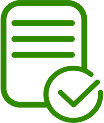
Assess
Monitor understanding with built-in reviews and formative assessments. Includes a review book after every three Text Sets.
Read to Know Text Set Components
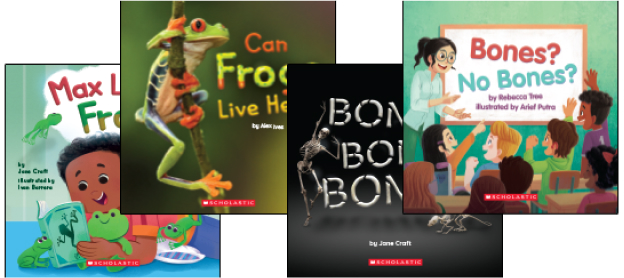
High-interest Books
Spark engagement with books that feature high-interest, quality texts that focus on decoding, fluency, and comprehension.
60 Books total (6 copies of each)
- 18 Text Sets (3 titles per set)
- 6 Review Books
- Wide variety of text types across fictionand non-fiction
- Decodable short texts and text sets
- High-interest topics
- Connections to math, science, andsocial studies
- Connected to content-area videos
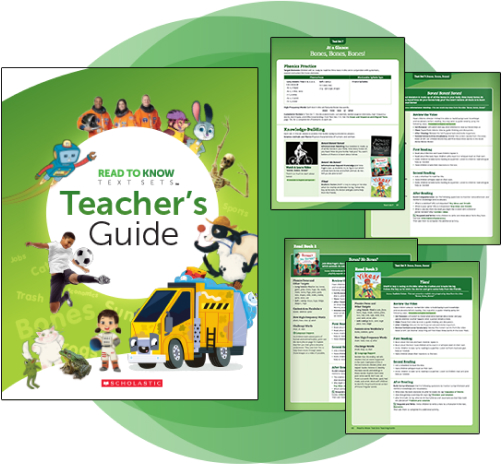
Teacher’s Guide Organized by Text Set
Explicit and systematic instructional support aligned to foundational language curriculum. Each set includes:
- A Phonics Focus
- Word and/or Syllable Type
- High-Frequency Word Lists
- Knowledge Building
- Get-Ready-to-Read Readiness
- Text-Specific Whole and Small-Group Instruction
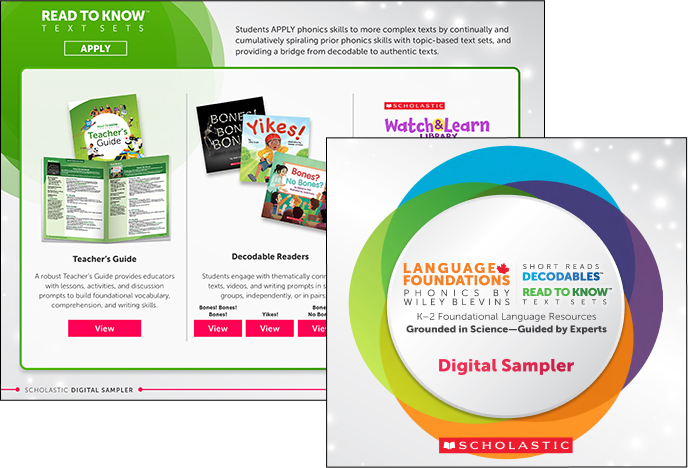
Digital Sampler
View the NEW Digital Sampler to see an example of three books from a Set, the Lesson Plans for that Set, the Watch & Learn video for that Set, and assessment opportunities!
Download Sample PDFAdditional Support & Information
Experts You Can Trust
To ensure Short Reads Decodables aligns with the latest literacy research, we’ve collaborated with some of the top minds in foundational literacy and phonics instruction.

Wiley Blevins
Author of Teaching Phonics, K–3. He is an author, educational consultant, and researcher who completed his graduate work at the Harvard Graduate School of Education. A former teacher, Blevins is a respected author of numerous phonics professional books, including Phonics From A to Z, and several phonics and reading programs from various publishers. He also wrote the phonics brief from the International Literacy Association, “Meeting the Challenges of Early Literacy Phonics Instruction.”

Dr. Anne Cunningham
Dr. Anne Cunningham is a professor of Learning Sciences and Human Development in the Berkeley School of Education at the University of California, Berkeley. She is a developmental scientist and educator known for her research on literacy and development across the lifespan in which she examines the cognitive and motivational processes underlying reading ability and the interplay of context, development, and literacy instruction.

Dr. Tanji Reed Marshall
Dr. Tanji Reed Marshall is a widely recognized expert on educational equity and educational leadership. She partners with states, school districts, schools, and education organizations to solve complex issues related to educational equity and to ensure that every child receives the excellent equitable education they deserve. Additionally, Dr. Reed Marshall is the Director of P12 Practise at the Education Trust, a non-profi t educational equity and advocacy think tank in Washington, DC.

Linda Gutlohn
Linda Gutlohn is a Science of Reading product consultant who is widely known for her expertise with phonics materials and the development of decodable texts. The editorial director and co-author of the CORE’s Teaching Reading Sourcebook, a highly rated textbook and comprehensive reference for research-based reading instruction, Gutlohn has over 10 years of experience as an elementary teacher and has served as a co-director of a professional development centre and as a language arts consultant.

Jennette MacKenzie, MEd
Jennette MacKenzie is an educator with experience as a classroom teacher, school librarian, district consultant, and principal/principal of curriculum and professional development for elementary and secondary schools. Jennette has taught Principal Qualifi cation Courses and numerous Additional Qualifi cation Courses for Brock University. She has done work for the provincial Ministry of Education and provincial teachers federation. Jennette is the senior author of several leading literacy series used by teachers and students across the country and frequently provides professional development for schools, school districts, and provinces. She is currently conducting research and developing literacy resources for Scholastic Education.
